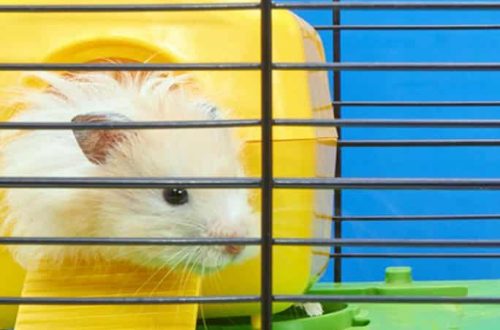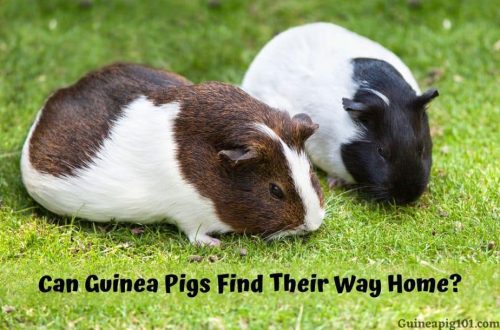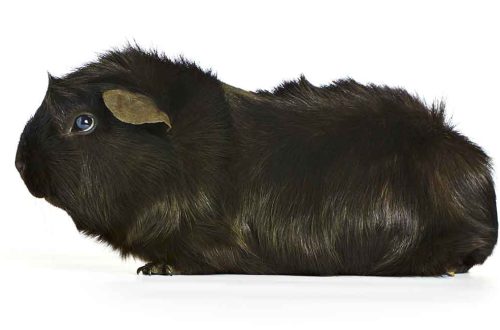
How to feed a Syrian hamster at home, what can and cannot be given
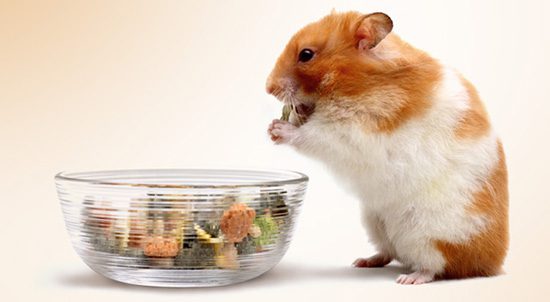
Choosing the right diet for your pet is the key to his health and good mood. In this article, we will consider how to feed a Syrian hamster at home, we will compile a list of useful and harmful foods. The list will help inexperienced owners quickly navigate and form the perfect menu for the baby.
We will also analyze what can be given to a Syrian hamster, and what it is absolutely impossible to feed it with.
Contents
What to feed a Syrian
The diet of the Syrian hamster in the wild consists of 3 main components:
- cereal grains;
- succulent feed (greens, vegetables, fruits, berries);
- protein food (small insects, worms).
At home, it is not difficult to provide a pet with a balanced diet.
Seeds and nuts
Since the homeland of the animal is forest-steppe and meadows, cereals should become the basis of its diet. The easiest way to provide your pet with the necessary seeds in full is by buying special mixtures for him in pet stores. They include:
- wheat;
- corn;
- oats;
- red millet;
- alfalfa;
- sunflower;
- shelled peas;
- linen;
- peanut;
- buckwheat;
- sesame.
All these components can and should be included in the diet of the Syrian hamster.
The only thing you need to pay attention to is that the percentage of fat-containing seeds and nuts (sunflower, peanuts) is minimal.
It is better to use such food as a treat so that the pet does not begin to gain weight.
You can make your own seed mix for your baby to be absolutely sure that all the ingredients are suitable for your pet. In the composition, in addition to the above components, it is good to include more seeds:
- Pumpkins
- watermelon;
- melons.
These components diversify the baby’s diet and saturate the body with useful substances.
Greenery and tree branches
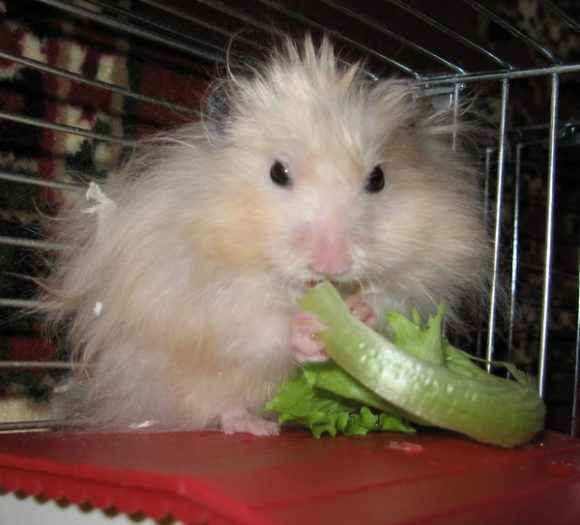
Fresh green food should also form a prominent part of the rodent’s daily menu. Here is a list of useful plants:
- knotweed;
- clover;
- wheatgrass;
- sleep;
- plantain;
- burdock;
- nettle (only treated with boiling water);
- leaf salad;
- parsley;
- dill;
- seedlings of wheat, oats, millet and other permitted seeds.
There are plants that can be included in the diet of the Syrian hamster, but this must be done with caution. This:
- tarragon;
- sagebrush;
- dandelion.
Grass for feeding a pet should be collected away from busy roads (the best option is your own garden plot), rinsed well with running water and then dried.
In order for the rodent to grind down constantly growing teeth, it is recommended to offer fresh branches of fruit crops and deciduous trees:
- apple trees;
- pears;
- Cherries
- birch;
- maple;
- beech;
- oak;
- poplars;
- and you;
- ash.
Branches should be cut in an environmentally friendly place. Before putting them in a cage, you should rinse the branches and remove all knots.
Vegetables
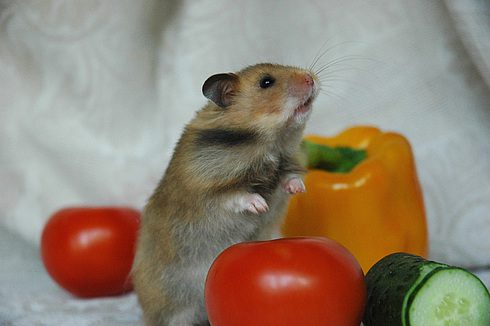
In the daily diet of the Syrian hamster, you need to include some juicy, vitamin-rich vegetables. The most useful vegetables for small rodents:
- carrot;
- cucumber;
- pumpkin (only pulp);
- Bell pepper;
- courgette;
- radish;
- turnip;
- beet.
Hamsters especially love carrots and cucumbers, but kids are always happy with other vegetables. It is necessary to choose a fruit for complementary foods very carefully. The pet’s small organism is hard to tolerate any “chemical” substances, so the vegetable is guaranteed to be grown without the use of pesticides and nitrates.
Even a small dose of chemicals, if it enters the animal’s digestive tract, will cause poisoning.
Vegetables should be fresh, without rotten areas. All root crops must be washed well before treating them to a pet. It is better to peel the vegetables from the skin and cut into small cubes so that it is convenient for the baby to eat.
Fruit
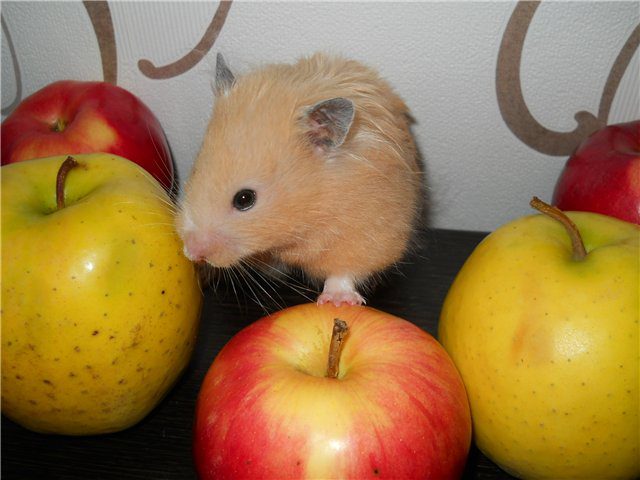
Sweet fruits are not recommended for daily consumption by rodents – they can lead to unwanted weight gain and diabetes. However, sometimes, as a treat, you can offer your pet:
- apples (if the apple is sweet and sour, you can give it more often);
- bananas;
- pear (first try to give a small piece to follow the reaction of the intestine);
- peaches;
- apricots.
Before you treat your baby with fruits, remove the seeds and seeds from them, cut them into small pieces and give them to the rodent one at a time.
Berries
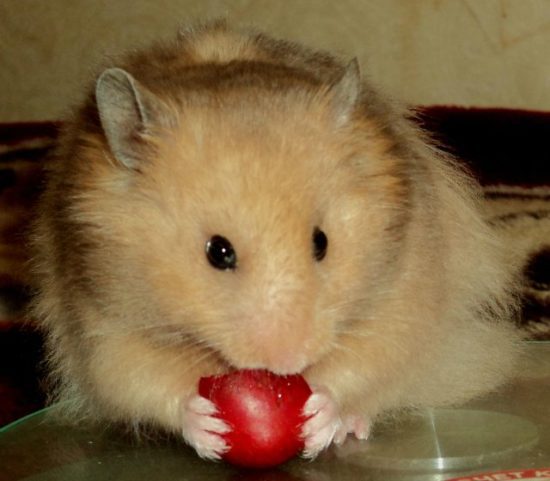
Berries are on the list of what Syrian hamsters eat in their natural environment. In a small amount, it will be useful for them to enjoy:
- strawberries
- strawberries;
- raspberries;
- grapes (seedless).
Berries should be chosen ripe, but not overripe, and washed well.
Protein Products
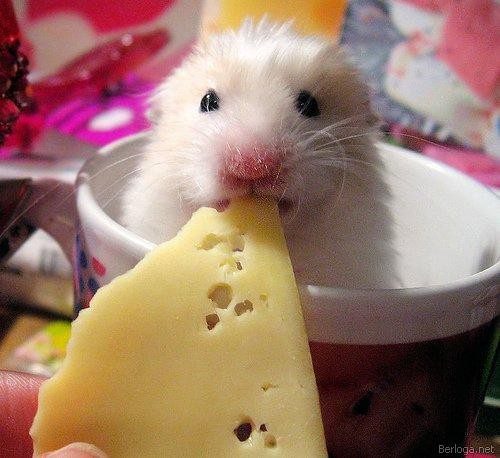
Consider what you can feed the Syrian hamster to provide the body of the rodent with protein. Here are the most useful and affordable sources of this diet component necessary for animals:
- eggs (chicken or quail);
- boiled chicken breast or lean fish;
- low fat cottage cheese;
- fresh green peas;
- chickpeas (before feeding must be soaked in water);
- insects or worms intended to feed rodents and sold in pet stores.
For these products to be beneficial, they should be given in limited quantities.
“Protein days” is better to arrange a pet twice or thrice a week. Products need to be rotated.
How to feed the animal
After the question of what a Syrian hamster can eat is resolved, it is necessary to figure out what liquid should be given to the animal. Contrary to popular belief, juicy food is not enough to provide the body of the animal with moisture.
The cage must have a special drinking bowl for rodents filled with fresh clean water.
What not to give
Despite the fact that hamsters are considered omnivorous animals, there are many foods, the introduction of which into the diet will adversely affect the health of the animal and can even lead to a tragic outcome. To avoid such a fate, one must clearly understand what Syrian hamsters should not eat under any circumstances:
- fats in any form (whether vegetable or animal origin);
- salt, sugar, artificial food additives, seasonings;
- needles;
- bulbous plants (tulips, lilies, etc.);
- sour plants, fruits and berries (sorrel, sea buckthorn, cranberries, etc.);
- citrus;
- cabbage;
- plants saturated with essential oils (mint, garlic, etc.);
- dairy products (except fat-free cottage cheese);
- mushrooms;
- bones of berries and fruits;
- potato peel and sprouts;
- bakery products (with the exception of self-cooked crackers);
- canned food, smoked meat;
- food intended by the manufacturer for other animals or for birds.
If you properly feed the animal, avoiding what he should not eat, he will remain healthy and cheerful for a long time.
All of the above products should be completely excluded from the pet’s diet.
General feeding recommendations
Since the Syrian hamster is the most active animal in the evening, feeding should be divided into two stages. Feed less in the morning and more in the evening.
It is necessary to carefully check all secluded places in the cage for hidden supplies and throw away spoiled treats.
When choosing a purchased mixture of grains, which mainly feed on rodents, be sure to check the expiration date.
What to feed a Syrian hamster
3.7 (73.16%) 307 votes



